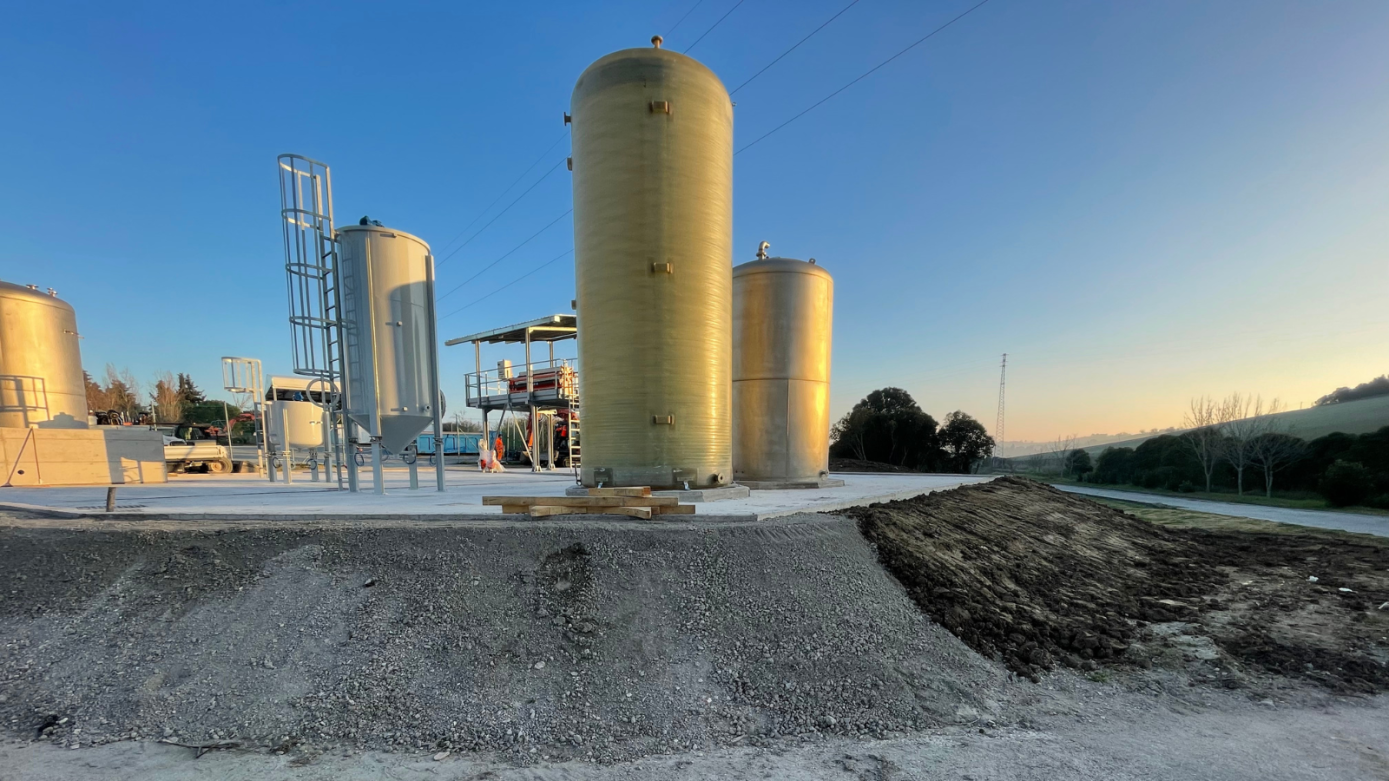UNIVPM: ECOSEDRA Pilot Plant to Remove PFAS from Dredged Sediments and Recover Material for Road Construction
In the PROMISCES project, the Universitá Politacnica delle marche (UNIVPM) implemented a prototype plant for mechanical sediment treatment, designed as a part of the Italian project ECOSEDRA. With the plant, partners of PROMISCES undertook investigations to understand how PFAS compounds behave during the mechanical operations and washing processes conducted by the ECOSEDRA pilot plant.
The prototype from the ECOSEDRA project was designed with the purpose of creating and validating at demonstrative scale (TRL > 7), an innovative technological solution for the eco-sustainable management of sediments from port dredging operations. Particularly within ECOSEDRA project, a prototype sediment treatment plant fed with 25-50 kg/h of dredged sludge from Ancona Sea port was implemented to produce construction materials for reuse in road embankments.
The ECOSEDRA plant is based on mechanical treatments to divide sediments in course and fine fractions. Then, fine fractions are cleaned by using different washing solutions (i.e. acid and basic washings). The project aims to implement the principles of circular economy during sediments management with the purpose to reach energy minimization, carbon footprint and other environmental impacts reduction.

ECOSEDRA Pilot Plant. @UNIVPM
In the context of sediment washing treatments, there is a lack of detailed information regarding the mass flow of PFAS compounds. As part of the PROMISCES project, researchers from the Italian cluster (including UNIVPM, Acea, and SIMAM) undertook investigations to understand how PFAS compounds behave during the mechanical operations and washing processes conducted by the ECOSEDRA pilot plant.
Hence, occurrence of PFAS was investigated in the final solid product (recovered sediments) and in the liquid wastes (washing water solutions). Effectiveness of the treatment was evaluated by comparing the detected concentrations of PFAS in clean sediments with the Environmental Quality Standards (EQS) proposed by the proposal EU-COM 540/2022.
Clean sediments after the ECOSEDRA treatment were stabilized by the addition of lime and solidified using concrete. Leaching tests were performed to evaluate release of both organic (e.g. PFAS) and inorganic contaminants (i.e. heavy metals) from the produced material.
Finally, mechanical tests were performed using molds produced with sediments. Results confirmed that the obtained material has suitable mechanical and environmental characteristics to be reused for road construction.

Mold preparation for mechanical tests to evaluate the suitability of recovered sediments as material for road embankment. @UNIVPM

Mold preparation for mechanical tests to evaluate the suitability of recovered sediments as material for road embankment. @UNIVPM
